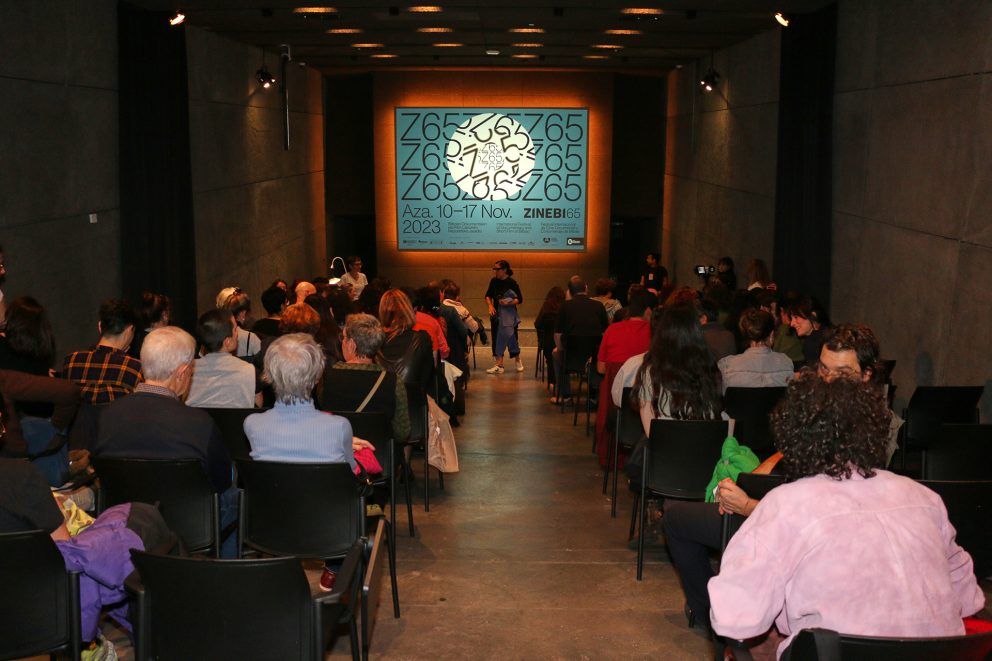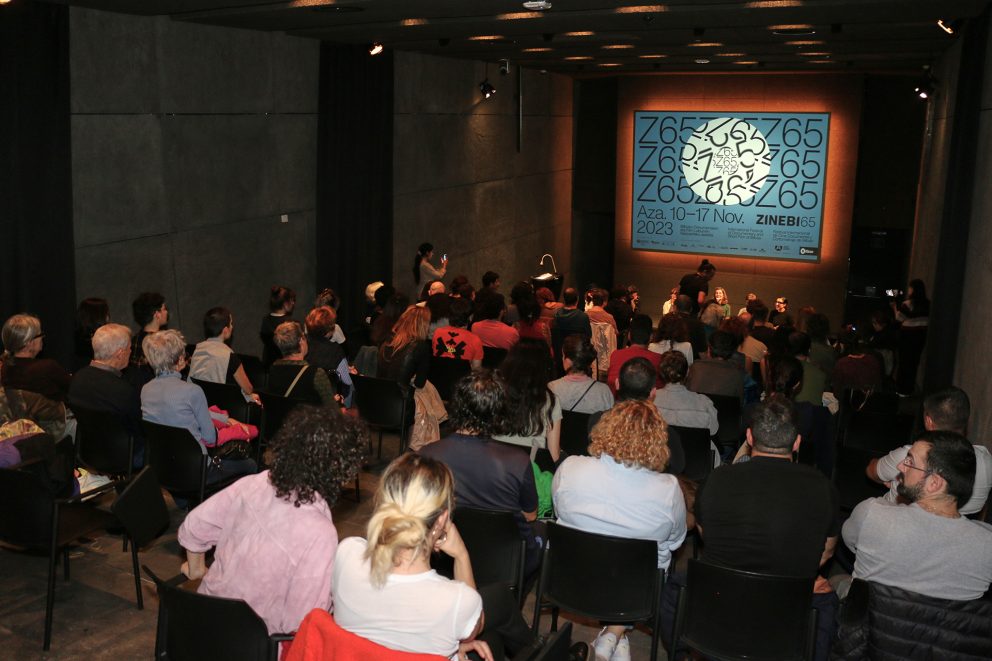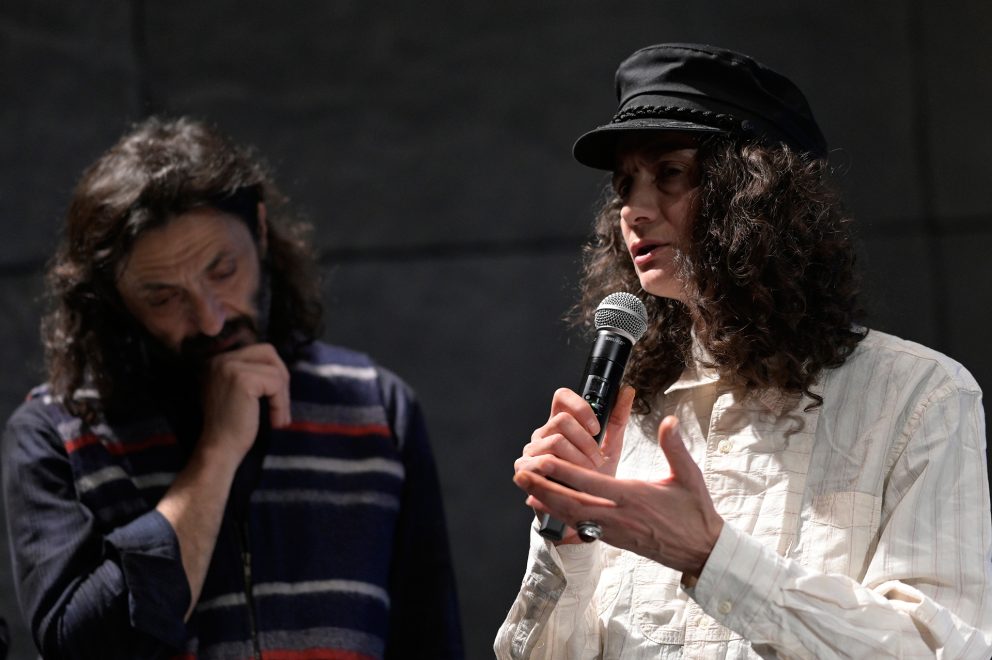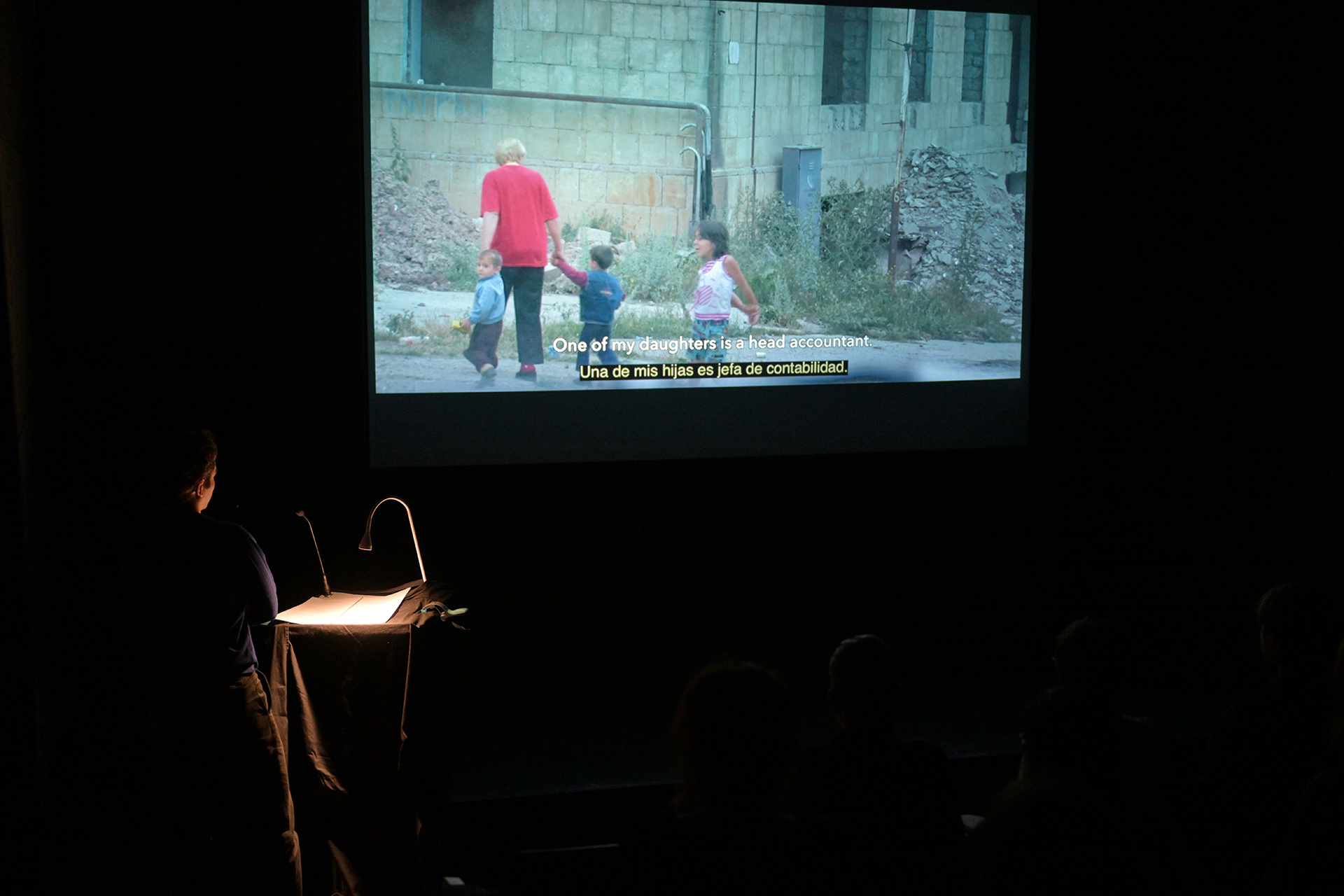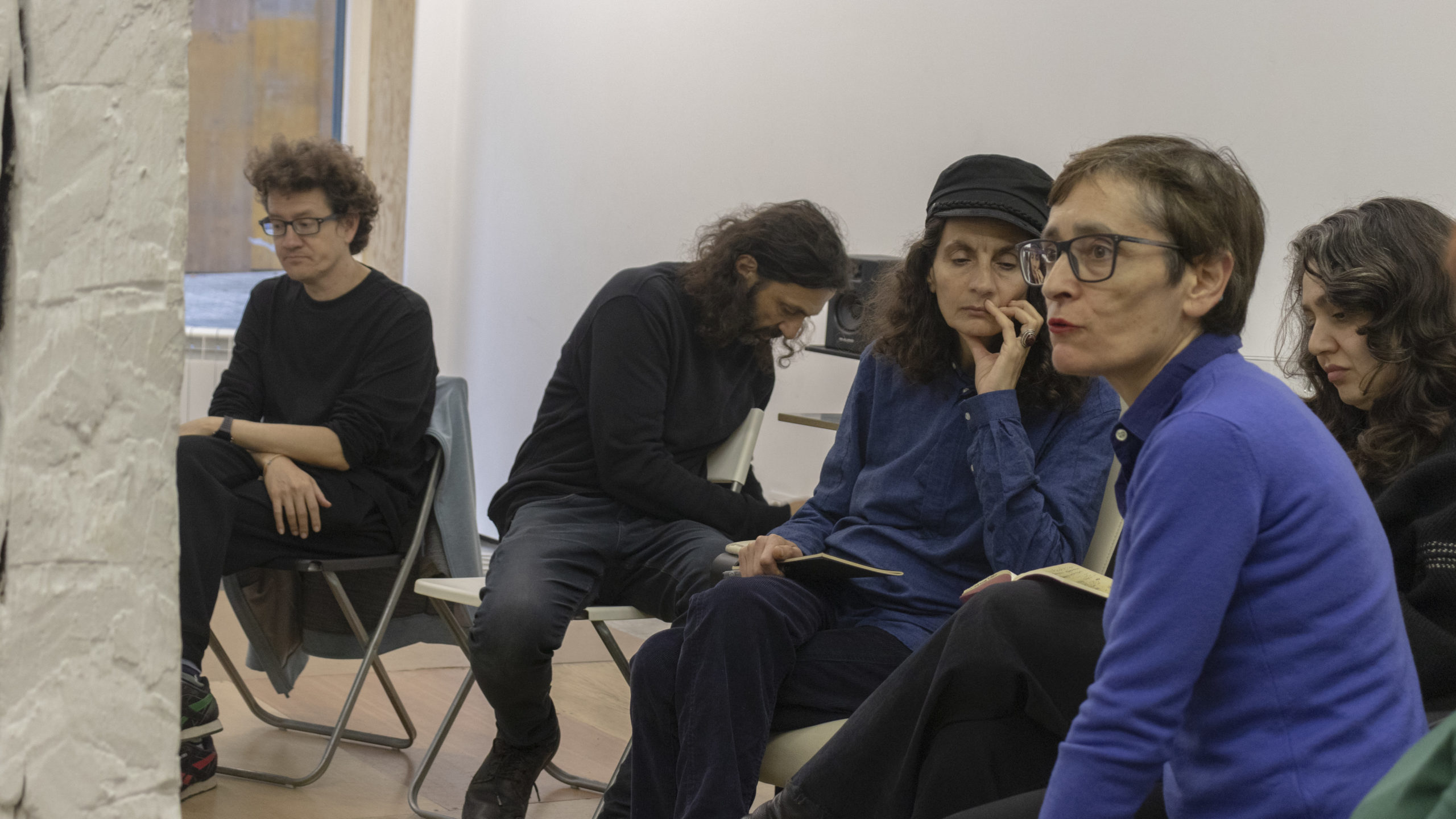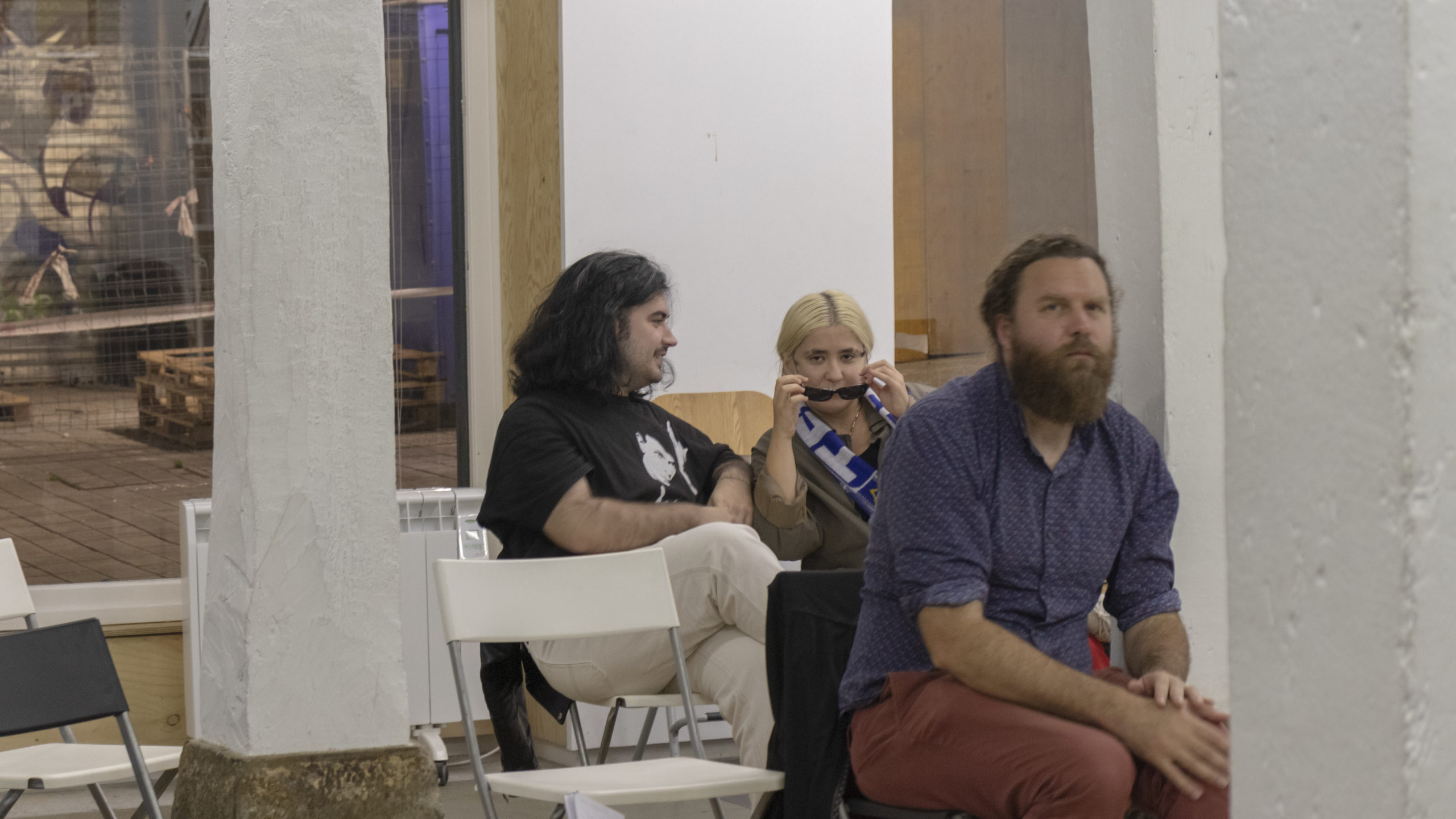Material Voices
BLACK BACH ARTSAKH
by
Session 6, Material Voices: Feminist genealogies of the work of making exhibitions.
Screening of Black Bach Artsakh (2021) and discussion/seminar conducted by the film’s directors, Ayreen Anastas and Rene Gabri, Azar Mahmoudian and Luis Moreno Caballud. During the screening, a Spanish translation of the voices in the film will be delivered live. In collaboration with Zinebi 65, International Festival of Documentary and Short Film of Bilbao.
Sunday, 12/11/2023
Black Bach Artsakh (2021)
Time: 5.00-8.00 pm
Venue: Sala Bastida, Azkuna Zentroa
Free entrance
Monday, 13/11/2023
Discussion/seminar with Ayreen Anastas, Rene Gabri, Azar Mahmoudian, Luis Moreno Caballud
Time: 5.00-7.00 pm
Venue: Bulegoa z/b
To take part in the discussion/seminar and be sent the selected texts, please contact bulegoa@bulegoa.org
Black Bach Artsakh (Ayreen Anastas, Rene Gabri, Armenia 2021, 150’)
Black Bach Artsakh is the name of a world. It lives in and as a film.
If film is a document, then it bears witness to a place and a time. This film recalls events from a place called Artsakh in the year 2007, 13 years after the 1994 cessation of hostilities in the struggle for self-determination by Nagorno-Karabakh’s Armenian inhabitants and 13 years before the 2020 invasion by the autocratic regime in Azerbaijan, to which the film is a response.
On September 19, 2023, after a ten-month blockade depriving Artsakh’s inhabitants of food, medicine, fuel and movement, a second major invasion by Azerbaijan ‘succeeded’ in the ethnic cleansing of Armenians from the existential territories they have inhabited for millennia.
Thus, to view the film is not only to inhabit this world, but also to care for it, keep it alive by keeping watch over it. In this way, it is not so much a film that resists the makers of war and those who deny and continue to justify genocide, instead it is a film that outlives them.
Spanish translation of voiceover and dialogues: Luis Moreno Caballud, Begonia Santa Cecilia.
Live performance of the Spanish translation of the voiceover: Miren Jaio, Izar Ocariz, Itziar Okariz, Víctor Ortuño.
BIOS
Ayreen Anastas and Rene Gabri are artists who have taken an interest in the cinematic experience as one that offers, like a clinic, a space for re-visioning our worlds, for caretaking, for nourishing the eyes and ears, for healing the souls, especially of those whose worlds remain threatened, whose voices have been silenced and assigned to oblivion by those who would imagine and place themselves at the center of history and in the seats of so-called power.
Azar Mahmoudian is an independent curator and educator. Thinking through the repetitions of contemporary political and social struggles, she is interested in the ways such “chronic” states could be understood as dilated times, containing multiple presents and presences, rather than as pathological loopholes and constancies of history. Her projects, such as the multi-chapter film program Sensible Grounds, or the exhibition When Legacies Become Debts, address intergenerational time and transhistorical memory as infrastructures, questions that have, above all, been formative for her experiments with pedagogical spaces. She runs the independent study program, A Summer School: For a Summer Yet to Come in Tehran and nearby places, and was part of the collective that organized Kaf in Tehran.
Luis Moreno Caballud. He was born in Fraga, Huesca, in 1976; he emigrated to New York in 2003. In the “occupy the squares” movements of 2011 he met friends with whom to maintain spaces of thought and life that attempt to interrupt the “normality” of biocide capitalism. He works in a university in Philadelphia. He has investigated capitalist “modernization”, the transformations of the rural world, the neoliberal crisis and the cultural hierarchies of the Spanish state. He published the essay Culturas de cualquiera (Acuarela, 2017) – English edition: Cultures of Anyone: Studies on Cultural Democratization in the Spanish Neoliberal Crisis (Liverpool University Press, 2018), and the novels Temblor de un día (Edaf, 2005) and La gran abundancia (La Oveja Roja, 2022).



